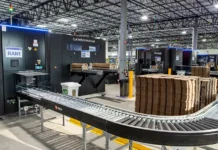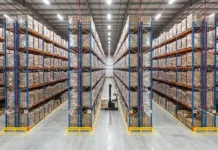In a growing, interconnected global setup, the spectrum of global trade has become more dynamic and even uncertain. As businesses go ahead and respond to various fluctuations within supply and demand, geopolitical issues, and also fast technology advancements, the requirement for time-critical logistics has gone on to emerge as a very important strategy in making sure to navigate these challenges. Time-critical logistics happen to represent a very prominent transition in how goods are transported as well as delivered by prioritizing speed and dependability in order to meet the rising demands of modern commerce. Let us explore the various elements that contribute to the growth of time-critical logistics, the implication it has for businesses, and also the evolving strategies that are going to define this new paradigm.
What does one mean by time-critical logistics?
Time-critical logistics happens to refer to transportation and supply chain processes that stress the timely delivery of goods, often in response to the immediate requirements coming from customers or even market conditions. In contrast to traditional logistics, which may as well prioritize volume and cost efficiency, time-critical logistics focuses on the capacity to adapt to the changing circumstances and also deliver products exactly when they are required.
This kind of approach has become increasingly relevant in a global trade environment, which is volatile, where disruptions like closures, fluctuations in demand, and shipping delays can occur with only minimal warning. Companies that embrace time-critical logistics are in a way better equipped in order to respond to these barriers, thereby maintaining their competitive edge within the market. As per a report by Deloitte, 65% of the supply chain executives believe that speed and flexibility are going to be the key drivers of success within the years to come.
Elements that are driving the demand for time-critical logistics
There are numerous factors that have contributed to the rising demand for time-critical logistics in the global trade environment of today. Firstly, the speed of e-commerce has heightened customer anticipations for a very fast delivery. As online shopping becomes increasingly prevalent, consumers are not only anticipating a broad variety of products, but at the same time they also expect a timely delivery, which is often within a matter of days or even hours. Retailers, along with manufacturers, have to adapt to their supply chain in order to meet these anticipations by placing a premium on speed as well as efficiency.
Secondly, the growth of just-in-time (JIT) manufacturing practices has also further amplified the requirement for time-critical logistics. With companies looking forward to minimizing their inventory expenditures and also maximizing their functional efficiency, dependence on timely deliveries of raw materials along with components has become very necessary. Disruptions within the supply chain can have repercussions, thereby leading to delays in production and also lost sales.
Besides this, geopolitical tensions along with economic uncertainties have also created a scenario where businesses have to remain agile and responsive. Tariffs, trade wars, and even the changing regulations can affect the supply chain, thereby necessitating rapid alterations within logistics strategies. In this regard, the capacity to deliver goods promptly and also in a trustworthy way is going to be crucial in terms of maintaining a high customer satisfaction index and also market share.
What are the strategies for executing time-critical logistics?
In order to effectively execute time-critical logistics, companies have to adopt a range of strategies that elevate their operational agility along with responsiveness. One of the key approaches happens to be leveraging advanced technologies like real-time tracking as well as data analytics. By way of utilizing tracking systems, businesses can track the status of their shipments in real time, thereby allowing for proactive decision-making along with fast responses to potential delays. Data analytics can also enable identifying the patterns and demand, therefore helping the companies to optimize their inventory levels and also make their replenishment process seamless.
One more essential element of time-critical logistics happens to be the establishment of proper collaboration with logistics providers as well as transportation networks. Collaborative bonds along with carriers, freight forwarders, and delivery services can elevate dependability and flexibility within the supply chain. Through working closely with logistics partners, these companies can better coordinate their schedules with transportation and also manage the capacity barriers, thereby adapting to the unforeseen disruptions.
Besides this, investing in multimodal transportation choices can offer greater agility within logistics operations. Making use of a mix of air, sea, and ground transportation enables companies to select the most effective and efficient routes as well as carriers based on their cost and urgency. This agility can be beneficial within the context of time-critical logistics, in which the ability to shift quickly can make all the difference.
Defining the role of technology within time-critical logistics
It is well to be noted that technology happens to play a very critical role in facilitating time-critical logistics and also overcoming the barriers that are posed due to a volatile global trade environment. Apart from real-time tracking and data analytics, there are emergent technologies like artificial intelligence and machine learning, which are also transforming logistics operations. AI-driven algorithms can evaluate massive amounts of data in order to optimize routing, anticipate any sort of delays, and also give out recommendations based on alternative solutions by enhancing the total efficiency.
Apparently, automation is growingly becoming integral to time-critical logistics. Automated fulfillment centers, autonomous vehicles, and drones are reshaping landscapes of logistics, thereby enabling much faster processing and delivery of goods. As the companies integrate these technologies within their operations, they can also elevate their capacity in order to respond to time-sensitive demands while at the same time decreasing their labor expenditures.
Case studies within time-critical logistics
There are many companies across a range of sectors that are successfully executing time-critical logistics strategies in order to navigate the intricacies of global trade. For example, global commerce giant Amazon has gone on to build a very strong logistics network that prioritizes efficiency and, of course, speed. Due to the fulfillment centers strategically located throughout major metropolitan areas as well as advanced logistics technologies that are in place, Amazon has continuously met the customer anticipations when it comes to rapid delivery.
In a similar way, automotive manufacturers are growingly adopting time-critical logistics in order to make sure of just-in-time delivery when it comes to components. The automotive supply chain depends heavily on synchronized deliveries, with companies executing advanced tracking as well as data analytics in order to track their inventory levels and also coordinate shipments in an effective way.
When we talk of the healthcare sector, time-critical logistics have become essential in terms of delivering medical supplies along with pharmaceuticals. The COVID-19 pandemic underscored the need for fast delivery of vaccines, testing supplies, and PPEs. Companies that took into account time-critical logistics were able to respond in a more effective and efficient way to the urgent demands of healthcare providers, thereby ultimately saving lives and also supporting the efforts of public health.
Conclusion
The growth of time-critical logistics within a volatile global trade environment happens to mark a prominent transition in how businesses go ahead and approach their supply chain management. As customer expectations evolve and external elements create uncertainties, the capacity to deliver goods in a fast and dependable way has become paramount. Companies that go on to embrace time-critical logistics by way of advanced technologies, agile transportation choices, and strategic collaborations are very well positioned in order to thrive in this new spectrum.
As the global economy continues to evolve, the significance when it comes to time-critical logistics is only going to grow. By way of prioritizing agility and speed, businesses don’t just elevate their functional efficiency, but at the same time they also make their competitive advantage more robust in a challenging market. In the dynamic environment that we are in today, the commitment when it comes to adopting time-critical logistics strategies is going to be instrumental when we talk of driving success and also fostering resilience in a scenario of uncertainty.





























